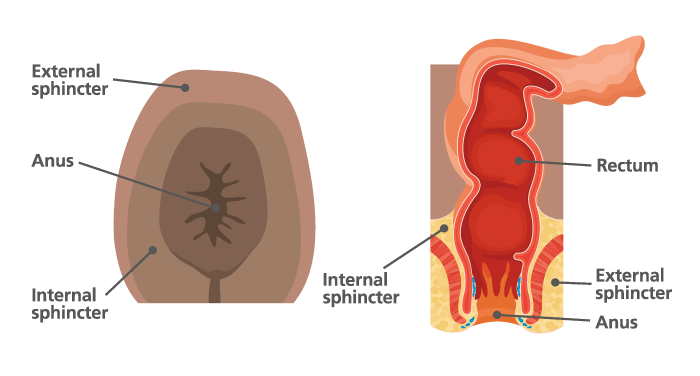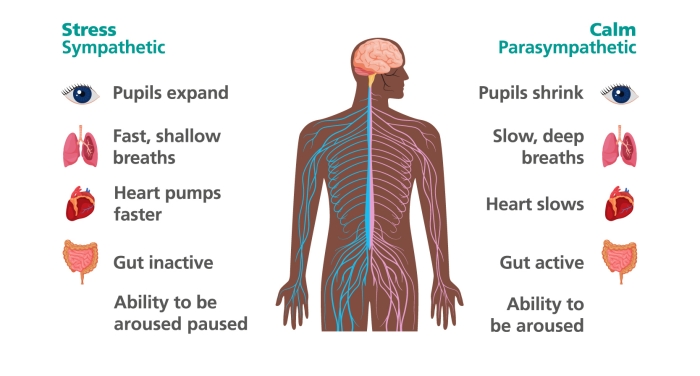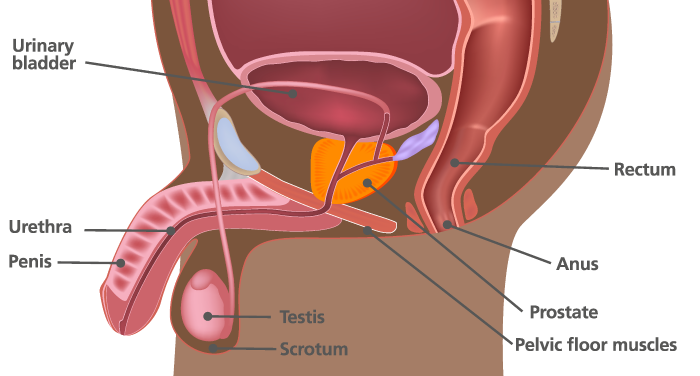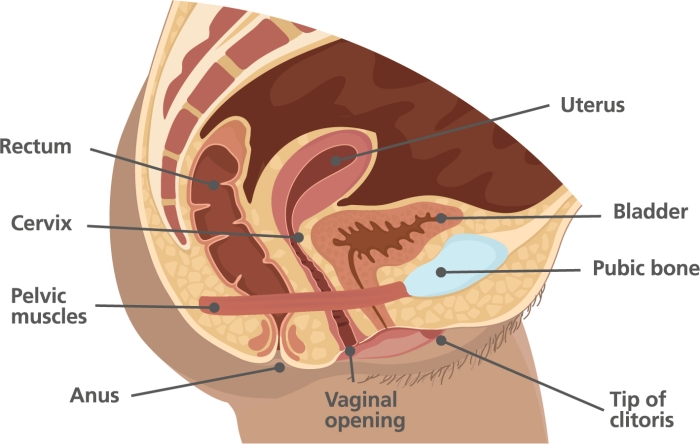This booklet series has been developed by specialist psychologists and medical doctors working in CNWL’s Sexual Problems Assessment and Treatment Service (SPATS). The information and exercises described in this booklet are based on psychological and sex therapy techniques that have been shown to improve sexual difficulties.
This series has been written for people of all genders, sexualities, sexual orientations, cultures, backgrounds and relationship statuses. While the suggestions and exercises in each booklet are based on principles that are relevant for everyone, some sections contain information about the biological and physical changes that can happen in specific parts of sexual anatomy. Some content and diagrams may not be reflective of your anatomy, including people who are intersex, people who have had gender affirming surgery, or people who have experienced physical changes due to specific medical conditions and/or treatment required. In these instances, if further information is required we recommend you speak to your GP or a specialist in sexual medicine. All bodies are different and we invite you to use the booklets in the way they are most applicable to you.
For further information, visit our Resources page.
Other booklets available in this series:
- Enhancing sexual desire and enjoyment
- Getting and keeping erections
- Ejaculating sooner than you would like
- Ejaculating later than you’d like
- Vulval pain during sex
- Difficulties with vaginal penetration
This booklet provides information for anyone who wants to explore anal play.
-
Understanding anal pleasure
Information about enjoying safe and pleasurable anal play, who anal play is for, and common concerns about anal play.
-
Understanding arousal
Information about what happens to your body during sexual arousal.
-
General suggestions
Information about what can help to increase your enjoyment of anal play.
-
Communicating with partners
Suggestions for communicating with partners about sex and sexual difficulties.
-
Frequently asked questions
Answers to some common questions about sexual desire and enjoyment.
-
Further support
This booklet is for people who want to explore the erotic sensations available from anal play and/or anal penetration, either as the recipient or the giver. The idea of anal play may be completely new to you, or you may have wondered about it but never tried it. Or you may have tried it and experienced discomfort but would like to try it again.
Anal play incorporates any stimulation to the anus including:
- Touching (with hands)
- Licking
- Massaging
- Penetrating (with fingers or sex toys)
Stimulation to the anus can provide very pleasurable sensations for everyone.
Who is anal play for?
It is widely believed that only gay men engage in anal play or anal penetration, but this is not the case. Many people of all genders and sexualities enjoy this part of their bodies, and some men who have sex with men gay men don’t engage in anal play of any kind.
What are some common worries about anal play?
It is common for people to have mixed feelings about exploring anal pleasure This is a region of our bodies that is often taboo and that has been associated with dirtiness (although some people find breaking taboos part of the appeal).
Two common myths about the harms associated with anal penetration are that it can give you haemorrhoids (piles) or make you incontinent. These are not true.
All sexual activities that involve coming into contact with another person’s body mean we also come into contact with any bacteria or viruses they may have. It is a good idea for anyone who is sexually active, not just people engaging in anal play, to have regular sexual health check-ups.
It is important to educate ourselves about the possibilities and risks of picking up or passing on sexually transmitted infections (STIs), so we can make choices about who to have what kinds of sex with and what precautions to take in each instance.
It is important to understand that anal sex carries a few more risks than vaginal sex for the transmission of STIs, including HIV. This is because:
- The rectum is a lot less robust than the vagina.
- The walls of the rectum are very thin and easily damaged, and even tiny, invisible tears or grazes can allow bacteria or viruses to pass through.
- The lining of the rectum is very absorbent, and will soak up any fluids, such as semen, along with any bacteria or virus particles that may be present, and pass them straight into the bloodstream.
- Unlike the vagina, the rectum is not self-lubricating. The tiny amount of mucous present in the rectum is not enough to make penetration easy or comfortable. Using a lubricant (lube) for anal penetration not only protects the rectum from damage, it also enhances the pleasure.
If you and/or your partners are worried about passing on infections through any aspect of anal play, but still want to go ahead, you can put a barrier between you using cling film, dental dams or cut-up condoms for anilingus (rimming) and condoms or latex gloves for anal penetration with penis, hands, or sex toys. Be sure to change whichever barrier you are using between uses/partners.
Do I need to douche before anal play?
People often worry that they will smell or taste bad, even if they have emptied their bowels. But, if you have a bath or shower and wash as usual before engaging in anal play or penetration, you should be clean enough.
Some people are more concerned than others about cleanliness in this context, and sometimes they wash inside their rectum before anal sex, using a douche.
A douche is a device for squirting water up your anus or vagina, to clean it out.
Anal douching is not recommended because:
- it washes away the protective mucous in your rectum, leaving you more open to infection;
- it can cause irritation to the rectal lining (especially if you use ready-filled douches containing chemicals), which will let infection through even more easily; and
- with some douches, it can be difficult to control the pressure or quantity of water entering you, and some nozzles may cause tiny injuries to your rectum.
If after reading the above you still feel you want to douche, it is important that you use only plain, clean water at body temperature. And we recommend that, if you do use a douche, you use only the small rubber bulb type. However, you should be aware that even plain, clean water can irritate the lining of your rectum and make you more vulnerable to infection.
The anus is highly sensitive and rich in nerve endings. When you are aroused, chemical messages and hormones are sent around your body which allow physical changes to take place such as:
- your heart rate and blood pressure increase
- blood flows to your genitals
- your muscles tense
- your heart beats faster
- your breathing becomes faster and deeper
The anus becomes more sensitive to touch and the rectum expands. However, unlike the vagina, the rectum doesn’t produce any natural lubrication.
These physical changes prepare your body for sexual contact, and can make touch feel comfortable and enjoyable. It is important that you give your body time to respond during the arousal process, so that you don’t feel any discomfort during a sexual experience. It is also important that you feel confident talking about this with your sexual partners so they understand and can respond to your feedback about how turned on you feel.
If anything gets in the way of the arousal process, then these physical changes may not happen and your body won't be prepared for sex.
There are two sphincters (rings of muscle) just inside the anus, which are shown in the diagrams below. The external one is a voluntary muscle, which you can flex as you squeeze your pelvic floor muscles (more on this later). The internal sphincter is an involuntary muscle that will clamp shut in an automatic response if you try to insert anything into it. This can lead to unpleasant, painful or disappointing experiences of anal play/penetration. However, as with other reflex muscles, you can train it to relax (as you do when learning not to blink while inserting contact lenses, for example).

Most people with penises will have a prostate gland located in front of the rectum Anal penetration stimulates this gland, which can produce intensely pleasurable sensations resulting in orgasm. In people with vaginas, anal penetration can provide indirect stimulation of the vagina wall. Some people find areas of this to be highly sensitive and some find stimulating it to be very pleasurable.
The impact of anxiety on arousal
The arousal process is controlled by a part of the nervous system called the parasympathetic nervous system (PNS), which is an involuntary, or automatic, system that is active when our mind and body is in ‘calm’ mode.
There is another system in the body, called the sympathetic nervous system (SNS), which works in opposition to the PNS - when one is in control, the other closes down. The SNS controls the brain and body when we feel stressed, anxious, or in danger (in ‘stress’ mode). This is sometimes called the ‘fight or flight response’.
When the flight or fight response is activated, it sends blood to the muscles we need to run or fight (for example, our arms and legs) and shuts down all non-essential functions that we wouldn’t need if we were in danger, including the arousal system.
The diagram below demonstrates the impact these two systems have on the body:

The fight or flight response can kick in for both real or perceived/imagined threats, meaning that worrying about something is enough to trigger these physical changes in our bodies. As shown in the diagrams, the body has to be relaxed (or in ‘calm’ mode) in order to become sexually aroused. When you’re anxious or worried (whether about being in a sexual situation or about anything else), your body switches into ‘stress’ mode which pauses the arousal system.
The image is a medical diagram - the impact of the ‘Stress’ or Sympathetic Nervous System and the ‘Calm’ or Parasympathetic Nervous System on the body.
The labels for the 'Stress' system include:
- pupils expand
- fast, shallow breaths
- heart pumps faster
- gut inactive
- and ability to be aroused is paused
The labels for the 'Calm' system include:
- pupils shrink
- slow, deep breaths
- heart slows
- gut active
- and ability to be aroused
Anal penetration and pain
Feeling any sort of pain during anal play and/or penetration can have a negative effect on your enjoyment. Sex ought to be an enjoyable and happy experience for all partners, and if you are experiencing pain, or are anxious about the possibility of feeling pain, you are probably not going to be able to relax and enjoy yourself. Discomfort on anal penetration, though fairly common, is not something you should endure.
As we have learned, being sexually aroused is a necessary part of enjoying anal play. However, if we are worried or anxious about something, the body’s sexual arousal response can’t work properly. It may be interrupted or it may not happen at all.
This will mean that the physical changes that make sexual touch and penetration comfortable won’t take place, and penetration is likely to be uncomfortable or painful as a result. Not only that, but feeling pain on one occasion can lead you to expect pain the next time you have sex. Anticipating pain in this way can further interrupt your body’s sexual arousal response, cause tension in your pelvic muscles and make pain more likely.
It is important to have a medical assessment by an appropriately trained medical professional, such as a specialist in sexual problems, to ascertain the role of any physical or medical factors contributing to difficulties you are having with painful anal penetration. Your GP may be able to help with this, or signpost you to an appropriate service.
To increase enjoyment from anal play, it is important to:
- Have sex only when you want to
- Meet your own conditions for good sex (for example having privacy, feeling relaxed, not feeling rushed, pressured, tired or distracted, feeling able to trust a partner)
- Learn to recognise when you are tense and identify techniques and ways to relax and overcome this
- Use self-exploration to identify the kind of stimulation you like and focus on this stimulation during partnered sexual activity
- Be able to enjoy having sex rather than worrying about your performance
- Feel confident to communicate and negotiate about sex with your sexual partners
Lifestyle factors
A healthy lifestyle helps to reduce stress levels and improve cardiovascular health. In turn, this can enhance arousal and support sexual functioning. A healthy lifestyle can be supported by:
- Getting enough sleep
- Eating well
- Exercising regularly
- Stopping smoking
- Limiting the use of alcohol and recreational drugs
Visit www.nhs.uk/live-well for help and advice around maintaining a healthy lifestyle.
We know that there are three key elements that enable sex to go as well as possible: psychological arousal, physical touch, and being in the moment. These are known as the Conditions for Good Sex (Gurney, 2020).
Psychological arousal refers to how much of what is happening you find sexually arousing and turns you on. This can include how attracted you feel to your sexual partner(s), things in the environment (like lighting, sounds), the context (time of day, your role in the sexual experience), and also sexual fantasy and types of porn.
Physical touch refers to the types of physical stimulation that your body needs to feel sexually aroused. This can include the types of pressures your body needs, the speed and location of touch, the types of sex you enjoy and whether you enjoy using sex toys and/or lubricant (‘lube’).
Being in the moment refers to how much you are able to be in the present moment (rather than caught up in other thoughts or worries) and how much you’re able to focus on the physical sensations and psychologically arousing stimulation. This also includes how much you’re able to feel relaxed. Later in this booklet we have included suggestions about using mindfulness to increase being in the present moment.
The closer each of these elements are to our ideal conditions, the better the sexual experience will be. If we have high psychological arousal (are aroused and turned on), are receiving the types of physical touch we find pleasurable and are able to be in the present moment (and not distracted by other thoughts or worries) we have met the conditions we need in order for sex to go well.
Knowing your own conditions for good sex can help you to:
- understand what you need for sex to be its most enjoyable
- understand what might be disrupting the arousal process
- understand how these conditions might have changed or been impacted by sexual difficulties
It is not usually necessary for all of your conditions for good sex to be met throughout every sexual experience for the experience to be enjoyable. However, understanding your own conditions, and talking about them with sexual partners, can help to include more of your conditions more of the time.
It can be helpful to become familiar with your own anus by exploring it using a well-lubricated finger. Make sure that your hands are clean and your fingernails are short and well-filed (smooth).
Try stroking and circling the anal opening before slipping the tip of your finger inside, and wait for the internal sphincter to relax. This can take from a few seconds to half a minute or more. Take deep breaths, focus on the sensations, and only move your finger further in when you feel ready.
You can experiment with different strokes (circular, stroking, sliding slightly in and out) and discover which sensations you enjoy. This will help you to be able to tell partners how to please you, as well as give you ideas about how you can stimulate them.
Learning to relax your internal anal sphincter is a necessary part of learning to enjoy anal sex. Pelvic floor relaxation helps with that, because doing them makes you more aware of all the muscles around your anus and genitals.
Our pelvic floor muscles are like ‘a bowl of muscle’ underneath the pelvis. They provide support for the pelvic organs and help control when we go to the toilet. They also help to increase blood flow to your genitals which aids arousal and increases pleasure. Contractions of these muscles also help produce sensations at orgasm.
The image below shows where your pelvic floor muscles are on your body. You can feel your pelvic floor muscles by contracting your anus as though you’re trying to stop a bowel movement, then imagine a zip closing forwards an upwards as if you’re trying to stop the flow of urine at the same time.


Sometimes, the muscles of the pelvic floor can become tight or tense. There are many reasons why this happens, for example injury during surgery or childbirth, a history of sexual trauma, feeling anxious about sex for any reason, or just the anticipation of penetration. This tension can cause pain or discomfort during sexual activity, and reduce pleasure.
Pelvic floor relaxation exercises improve your awareness of when these muscles are tense or relaxed. Ensuring our pelvic floor muscles are relaxed helps sex to be enjoyable and not uncomfortable or painful.
To practise pelvic floor relaxation, you can use a technique called ‘Sniff, Flop and Drop’.
- Sniff - take a soft and deep breath in through the nose over three seconds. Keep your shoulders relaxed and your chest still.
- Flop - keep your stomach soft while breathing in. This should mean that the abdomen ‘flops’ or fills all the way out on the in-breath.
- Drop – allow your pelvic floor to drop or release also during the in-breath.
You might find it easier to close your eyes while doing the exercises to really focus on the sensation of the pelvic floor relaxing, of ‘dropping away’. You can then take this skill into sexual situations, consciously relaxing your muscles in the sexual moment.
If you have are experiencing any penetrative or sexual pain, you should not attempt pelvic floor strengthening exercises without consulting a specialist sexual problems doctor or pelvic floor physiotherapist.
Earlier in this booklet we explained the importance of being in the present moment to fully enjoy sex. ‘Mindfulness’ has its roots within a wider set of Buddhist spiritual teachings and practices, the benefits of which have been known to Asian communities for centuries. More recently, a secular version of mindfulness practice has been adopted by Western cultures. Mindfulness practice can enhance our connection to the present moment, which can help improve a range of difficulties, including sexual ones.
When we get caught up with critical thoughts or trying to change things, this takes us away from the present. An important part of mindfulness is paying attention to your present experience without evaluating it. This means not judging the experience that you are having, just noticing it with curiosity and openness.
There are many ways to practise mindfulness. For example you could:
- Go on a walk and use all your senses to notice your present moment experience – the different things (like colours and textures) you can see, the smells and the sounds. Rather than ‘listing’ the things you notice, this is about really experiencing them in depth and detail.
- Sit in comfortable position, with your feet on the floor and your back straight but relaxed. Spend some time focusing on your breath as you inhale and exhale, focusing your awareness on the natural rhythm of your breathing.
It is completely normal for your mind to wander. When you notice this has happened, gently bring the focus of your attention back to the present moment.
It can take time to increase your ability to be mindful. You can start by practising for 10 minutes each day as you get more confident. Building up your day to day mindfulness skills can help you stay more present during sexual situations. Everyone responds differently to mindfulness practice, however. As with all suggestions in this booklet, only do what feels right for you and stop if anything causes you pain or feels distressing.
We are all unique when it comes to sex. Our partners cannot read our minds. They are very likely to have had different experiences of sex, and be holding different assumptions, beliefs and preferences to our own.
Good communication can help you to:
- Get closer to the sex life you want by sharing your conditions for good sex
- Meet your partners’ needs by better understanding their conditions for good sex
- Allow your partners to understand any sexual problems you might be having and what they can do to help
- Build trust and intimacy in your relationships
What gets in the way of communicating about sex?
- Not realising or believing it’s important e.g. “good sex should just happen naturally”
- Feeling awkward or embarrassed
- Fear of rejection
- Worrying it will spoil the moment
- Feeling unsure what you want to say or how to say it
Take some time to think about your intentions in advance
What is it that you would like your partner to know? If the conversation went well, what would be different at the end of it? Planning ahead can helps to reduce your own anxiety and increase the chance of your partner being able to understand what you want them to hear.
Think about timing
Avoid having any difficult conversations about sex in bed, or just before/ after sex. You might want to plan the conversation for a later date to avoid putting your partner(s) on the spot. Choose a time when you won’t feel rushed, and have plenty of privacy. Avoid talking about sex or sexual problems during an argument, when you have been drinking or using drugs or when you are tired or stressed.
Put yourself in your partner’s shoes
Remember that they might feel vulnerable or embarrassed. How might it feel for them to hear what you have to say? Offering plenty of reassurance and appreciation can help them to feel comfortable.
Have a two-way conversation
Encourage your partner to share their own thoughts, feelings and preferences with you. Listen carefully to what they have to say without interrupting. Let them know you can understand their perspective (even if you might feel differently about some things). Thank them for being open and honest with you.
Use ‘I’ statements
Using sentences that start with ‘I’ rather than ‘you’ help ensure that we are communicating clearly from our own perspective. It also reduces the risk of the other person feeling judged or blamed. For example, say “I’d like us to try having sex differently” rather than “You always want to have sex the same way” or “You need to change”.
Approach the conversation with positivity and with solutions in mind
Frame the conversation as an exciting opportunity to try new things and expand your sexual relationship together. It can be helpful to be ready with some suggestions or requests to share with your partner to help move things forward. Focus more on talking about what you like, want more of or want to try rather than what you don’t like or want.
Keep the conversation going
Getting into the habit of regularly checking in about sex can help to reduce any awkwardness and anxiety we might feel. It can also make it easier to bring up any difficulties or problems with sex that you and your partner(s) might have in the future.
Is it normal to experience pain the first time I have anal sex?
Some people find their first experience of anal sex uncomfortable or painful. This is largely due to the resistance of the sphincter muscles at first and can be made worse by worrying about feeling pain, but it usually gets better with time and experience. Many people hear stories as they are growing up about anal sex being painful, or even ‘wrong’. Unfortunately, this can sometimes lead to bad experiences because when we are expecting pain (or feeling bad about what we are doing sexually), we are less likely to get turned on (and not being turned on, as we have said before, can make penetration painful). The suggestions in this booklet can help you overcome any experiences of pain that you have had.
What if I’m penetrating my partner and I lose my erection?
It is perfectly normal for this to happen once in a while, but if it’s a real problem there are a few different things you can try. Make sure you’re relaxed; if not, take some deep breaths and focus on positive thoughts and images. If you’re already inside your partner, you can stay there and try to get the stimulation you want — for example, moving in certain ways, or getting them to squeeze their pelvic muscles. Or you can withdraw from them and use whatever stimulation works well for you, and go back to penetration when you’re hard again. If this regularly happens, you may want to read another of the booklets in this series, Getting and keeping erections, which includes information and exercises you can do to improve your erections.
What if my partner and I want to try fisting?
If you and your partner want to try fisting, you can start by inserting one finger, and gradually add a second and third finger until four fingers are inserted up to the widest part of the hand. Keep adding more lube throughout, and if you meet resistance, pull back for a bit. You can slide your hand straight in or twist as you insert it. Once your hand is in up to the wrist, stay still for a while so that you can both get used to the sensations, and then follow your partner’s requests - you can rotate your hand, ball it into a fist, move gently in and out, apply pressure or stroke the rectum. Or you can stimulate your partner (or have them stimulate themselves) to orgasm if they wish, while leaving your hand inside them. Be careful to withdraw your hand slowly and gently. Fisting takes time and patience, and for most people requires trust, as it can produce very intense sensations and feelings of vulnerability. Never force your body or your partner’s body to accommodate more than feels pleasurable at the time. If you want to know more about fisting, see our Resources page.
How can I practise safer sex?
There are a number of ways in which you can have safer sex in order to protect yourself and partners from sexually transmitted infections (STIs) and from unwanted pregnancy. These include using condoms, pre-exposure prophylaxis (PrEP), to protect against the transmission of HIV, and different contraceptive methods.
In this booklet, we have chosen not to refer to any one of these specific methods, and encourage you to make your own decisions about protecting yourself and others in each instance of sexual activity you undertake. Your local sexual health clinic can provide you with free STI testing and information and advice on practising safer sex.
Additional STL resources
Sex Therapy London is a website developed by clinical psychologists at Central and North West London (CNWL) NHS Foundation Trust who specialise in sexual health and sexual difficulties. This website contains a range of self-help information, advice and resources to help improve your sex life. It also has free interactive online programmes for people experiencing sexual difficulties that are available to patients of CNWL Sexual Health Services.
Further support
Within the United Kingdom, if you need further information, support or advice about your sexual difficulties there are a number of options available to you.
Sexual difficulties can sometimes be connected to an underlying health problem, so making an appointment to discuss this with your GP is an important step. Your doctor may also be able to refer you on for any specialist support you might need.
Psychosexual therapy is sometimes available via the NHS. Your GP or your local sexual health clinic can help you access this in your local area.
You can also access psychosexual therapy via the Relate website or by finding a private, specially trained psychosexual therapist on the Cosrt website. Other private therapy providers are available.
